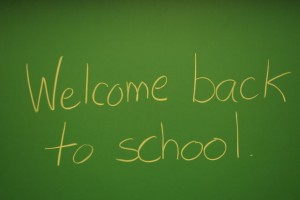I’ve had a couple of requests for this post, so I thought I’d give writing it a try. Seeing as I don’t have children, and didn’t grow up here, I’m a bit out of my element!
I’ve sent this post out to a few friends who have kids that grew up in Basel, who have looked in over (thanks guys!!), so hopefully most of the content is accurate! Remember, you should make sure you confirm this information with the schools or government! You should also talk to your employer, as some of the companies in Basel might sponsor your child’s tuition at a specified, private school.
From what I understand, the school system in Switzerland is Canton dependent and not standardized across the country. If you move to Basel, you’ll probably live in Canton Basel-Stadt. I’ll try to keep my information confined to Basel-Stadt. If there is need for it later, I may write another post about the differences between the school systems in Basel-Stadt and Basel-Landt.
The school system in Basel has changed quite a bit over the last two decades. Prior to school reforms, the educational prospects of the children would be decided in their 10th year, and the children would be grouped into educational streams based on ability and preferences. Today, the children are still streamed, but this is done later in their education.

Your child’s education is one of the key decisions you’ll make for them, so you want to be sure you are informed about the school system before you’ve moved to Basel, or as soon as you arrive. Where your children attend school, in part, will be determined by where your residence is located. All children in primary school, should be in attendance of a school within walking distance of their home, and they are often expected to come home for the lunch break.
Pre-School/Daycare in Basel:
There are numerous daycares in Basel, that will take children before they go into the regular, government school system. They take infants as young as 3 months old, toddlers from 2-4 years old and have kindergarten for children from 4-6 years old. These are privately run, and can be quite costly, depending on the facility and how many days per week you send your child for. There are German only daycare centers, English only daycares, and bi-lingual facilities which teach the children in two languages. I would imagine that you could also find daycare centers focusing in other languages.
The Compulsory Swiss School System in Basel-Stadt
There is a mandatory education period in Basel, which lasts about 11 years, including kindergarten. After this mandatory education period, your children will be assessed, and then continue education at various secondary schools or in vocational traing, based on the assessment of their skills and aptitudes.
The primary language spoken in the Swiss public school system is German, but support classes are available for children who have just arrived from non-German speaking countries. This is to get the children up to speed as quickly as possible, and allow them to integrate into school in Basel.
Kindergarten in Basel
Kindergarten in Basel, is for children from 4-6 years old, and is part of the mandatory school period. The Kindergarten curriculum is geared to learning through play and different sensory experiences. For expat parents, who don’t have exposure to German in the home, a kindergarten environment is ideal for their children to learn a new language. There are over 150 licensed kindergartens in Basel-Stadt, so hopefully you can find something for your children close by your residence.
Primary School:
From the age of 7-11, kids attend primary school. This is where they begin to learn reading, writing and the other academic skills they’ll need for the rest of their lives. Starting school at 7 years old is a bit later than what I’ve seen in other countries; however, you are free to teach the children at home or in private classes before this. The size of the primary school classes is limited to 25 children. The primary school system in Basel-Stadt is geared to expats, with intensive immersion courses in German offered, to teach children from other countries the German language as quickly as possible and then allow them to move into regular classes.
Allocation of grade level is very fluid in the Swiss system and takes into account a child’s abilities more than many other systems. As a result, children can move up or down a level and repeat years to allow them to develop optimally. It’s not unheard of for children enter classes a year below their age appropriate grade, to allow them more time to develop their language abilities. Children from other countries often have a few trial days and assessments when they start school, and will generally be given additional lessons, several times a week, to develop their German skills. Parents are provided with input into their child’s development through meeting and school reports. Traditional grades are not used at the primary school level.

Orientation school
Orientation school in Basel goes from the ages of 11-14. In these years, the strengths, weaknesses and preferences of the students are assessed. After they have been assessed, the children are streamed into different educational paths, based on their performance in Orientation School. They learn languages (German and French), Math, Sciences, History, Music. There are also large numbers of optional courses they can take.
After the Compulsory Education Period:
This is where it starts to get a bit confusing! Following the compulsory education period, students are divided into streams for further education, based on their aptitude in orientation school: an A-Stream, an E-Stream and a Grammar School stream. Students are directed to the E-stream or the A-stream for two years, and to Grammar School for five years.
The A-stream
The A-stream is a general level education, for students who are not academically inclined and who are assessed to be likely to succeed in apprenticeships and vocational certificate training.
The E-stream
The E-stream is for students who are at a higher level academically than their A-Stream peers, and provides a curriculum geared to more academically demanding apprenticeships and further education. Often, students in the E-Stream can study applied sciences at university after a vocational or specialist baccalaureate.
Students in the A-stream or E-stream can move to the grammar school stream, by passing in a qualifying examination.

Grammar school:
Grammar school (Gymnasium), is the education stream for strong academic students, leading towards the expectation of a university level education. Grammar school is for students from 14-19 years old (the 8th to the 12th school year). In addition to the broad range of academic subjects, students are encouraged, and expected to learn independently. Once they have graduated from a grammar school (around 18 or 19 years old), they receive a Swiss baccalaureate certificate (also known as a Matura / Maturität), which qualifies them to attend university.
Vocational Training:
In an apprenticeship, students learn their vocation through a combination of courses and on the job experience. Usually, vocational apprenticeships start after the 9th year of school, when the child is about 16 years old, and last between 2-4 years depending on the complexity of the vocation.
Upon completing their apprenticeship, the students receive a Swiss Certificate of Competence. If the student aspires to further education, after completion of their apprenticeship, they can improve their qualifications through further training and coursework, or take a vocational baccalaureate exam, allowing them study in the university system.
Private Schools in Basel:
If you choose to, and you can afford it, you can send your children to one of the many private schools in Basel and the surrounding area. There are international schools, that have children from numerous different countries, that are run in English or other languages. The schools meet federal standards and offer a wide range of courses, but are costly, and often have long waiting lists.
Be sure to talk to your employer about support that they might offer and discuss the ramifications of support for your family (i.e. if they provide support for two years, your children may need to change schools after this point, if you are unwilling to continue payment personally).
Good luck sending your children to school in Basel! If you have any further input that might be useful, send us a note, or leave a comment below!



